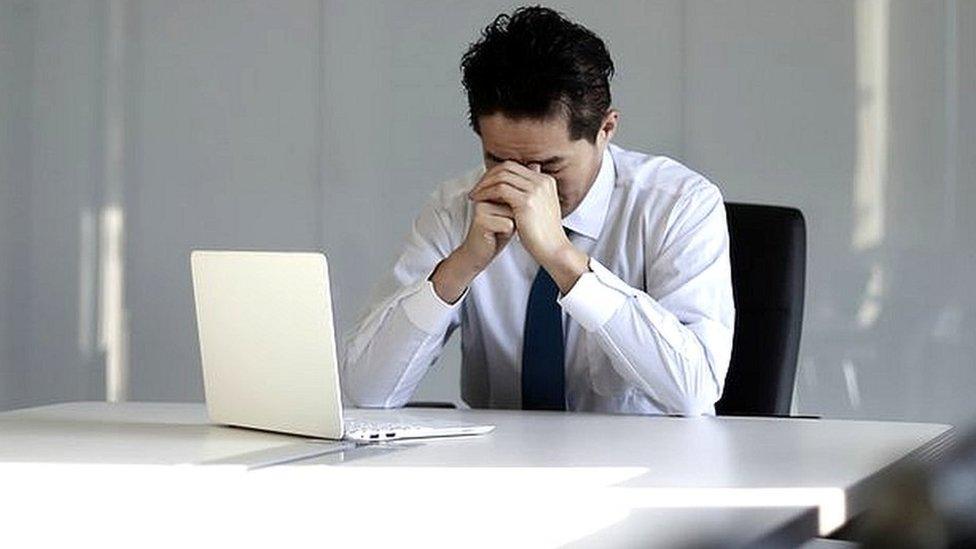Working from home 'has helped me make my career'
- Published
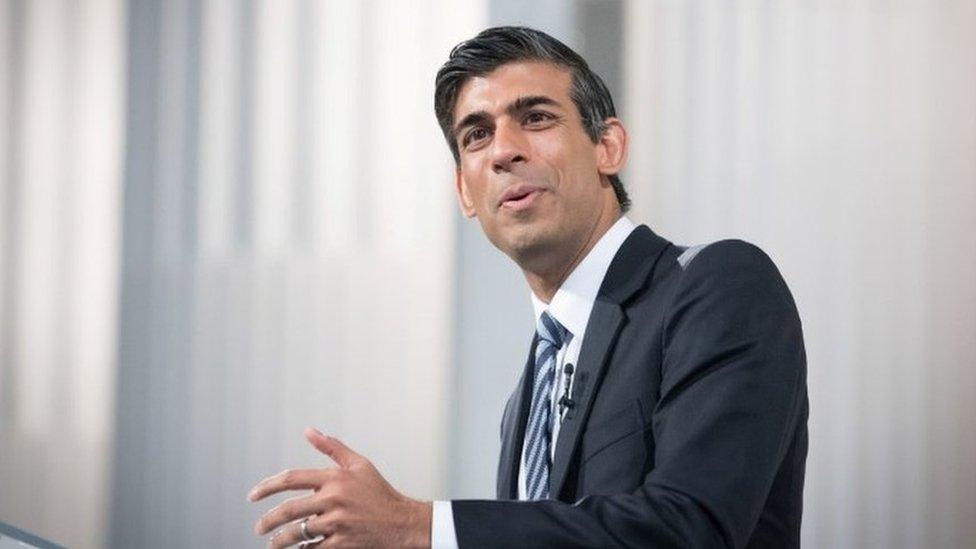
Chancellor Rishi Sunak this week told LinkedIn News he doubted he would have done as well if he had started his working life virtually.
Mr Sunak, who worked in finance, including at banking giant Goldman Sachs, said he still talked to his early mentors.
Many young people want to work from home for three days a week or more after the pandemic, research from Nationwide and Ipsos Mori in March found, external.
However, they are also more likely to say that working from home puts them under pressure - and that they feel they need more face-to-face time with colleagues to carry out their work effectively.
As people start to come back to the office, many firms and industry groups have said they will take a cautious approach to bringing staff back in to workplaces.
The BBC talked to two younger people to get their opinion on working from home.

'My career took off working from home'
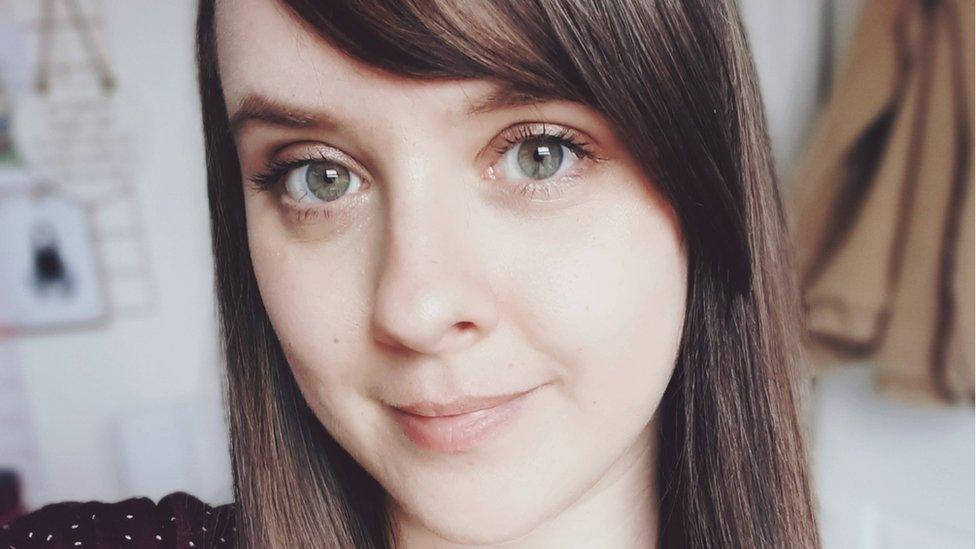
Rachel Rowlands' career took off after Covid paved the way for mass home working
Rachel Rowlands, 30, has her own book editing business.
She has suffered with anxiety and other health issues, which made going into a workplace difficult. But she decided to work from home and set up her own business four years ago.
She says working from home has helped her to build her career.
When she started her business, she was dealing with life-long health problems.
"I always found it difficult to be in the workplace," she says. "I couldn't get the flexibility I needed."
She had some temporary jobs, but when she left university, she couldn't find somewhere with the flexibility to work from home.
"People who have dealt with health issues haven't had that flexibility before Covid," she says.
"The chancellor says working from home can harm your career, but it's allowed people like me to make a career."
She has a history of panic attacks, so she would find it really difficult to go on public transport at rush hour.
"I used to struggle with getting to work in the first place," she says. "That's a big reason I wanted to work from home."
She adds that when you have mental health issues, sometimes office environments are not compatible with that.
She always wanted to go into book publishing and got into that through freelance work.
"I think the main thing I would say is that you don't always have to fit into the mould that society expects you to," she says. "Sometimes it just doesn't work for people. Not everyone's made to fit what people expect."
"Try new things," she adds. "Try things that work for you."

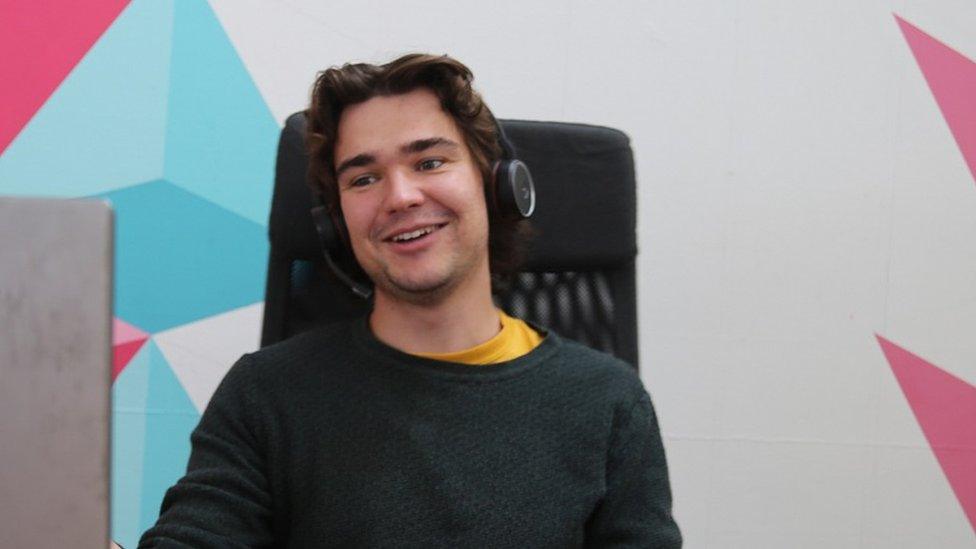
'The social aspect of being in an office is a key part of the job'
Ed Heap is a 24-year-old account executive at Bristol-based communications agency We Are Plaster.
He had been in the role for just four months before the first lockdown last year.
"Initially, lockdown was a novelty," says Ed.
"I was getting into Zoom and other new tech and having a bit of fun with it. But I live with three other people and all of us were working from home in our bedrooms."
"After two months, waking up every day and the first thing you see is your desk was pretty miserable," he says.
As soon as he was given the opportunity to return to the office, he jumped at the chance.
Ed was largely on his own for several months until more of his colleagues came back. He says it's been great to have other people around again.
"The social aspect of being in an office is a key part of the job, and something that got on my nerves during lockdown was when people were happily talking about how much more productive they were at home, because to me that's not the be-all and end-all.
"It's the people you meet, the skills you learn, and it's the social time you have there as well," he adds.
Ed says he values having more experienced people around the office to learn from.
"It's been essential. I can run things past them and ask questions. Having someone sitting across from you who has been in your shoes when they were starting out. It's more natural to talk things through in person, rather than having to send a Zoom invite for a meeting," he says.
"I've also been able to help out some of our more recent new starters and mentor them too, so it works both ways."
Ed says there are mixed views about working from home within his friendship group. He adds that he could only really imagine doing a remote-working role once his career has been firmly established in the future.
"I don't think in the next five to 10 years I can see the benefit of entirely remote working myself, though I do like the idea of not being tied to London and Bristol rents and the cost of living in some cities," he says.
Related topics
- Published3 August 2021
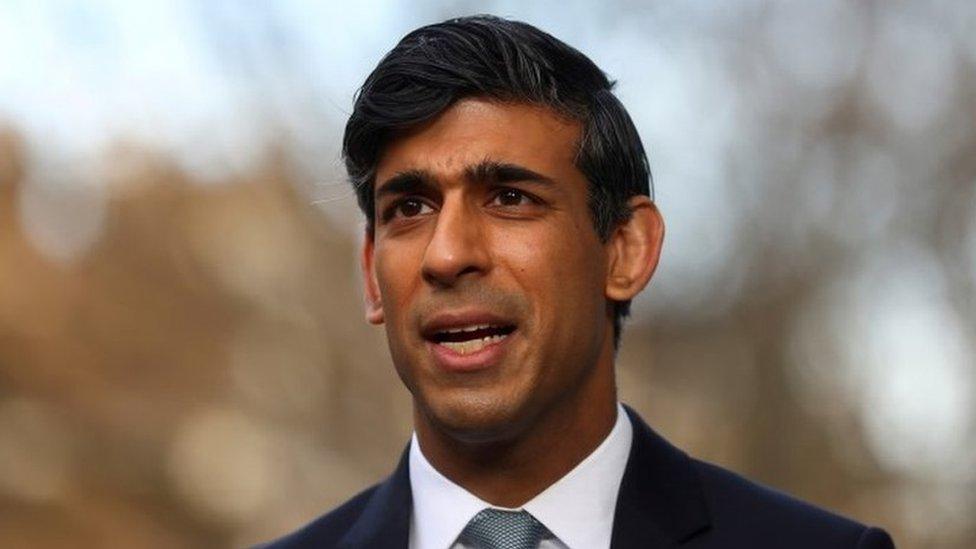
- Published31 January 2022
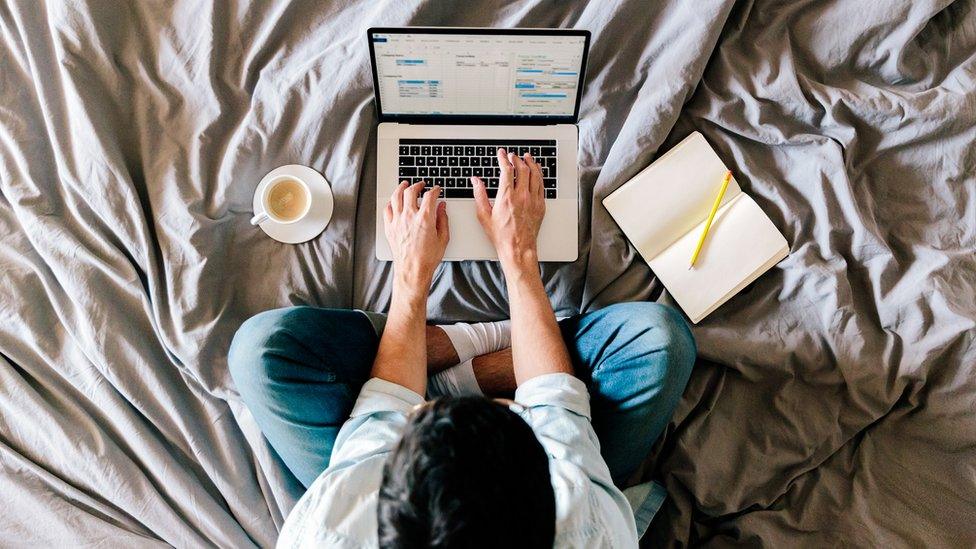
- Published13 July 2021
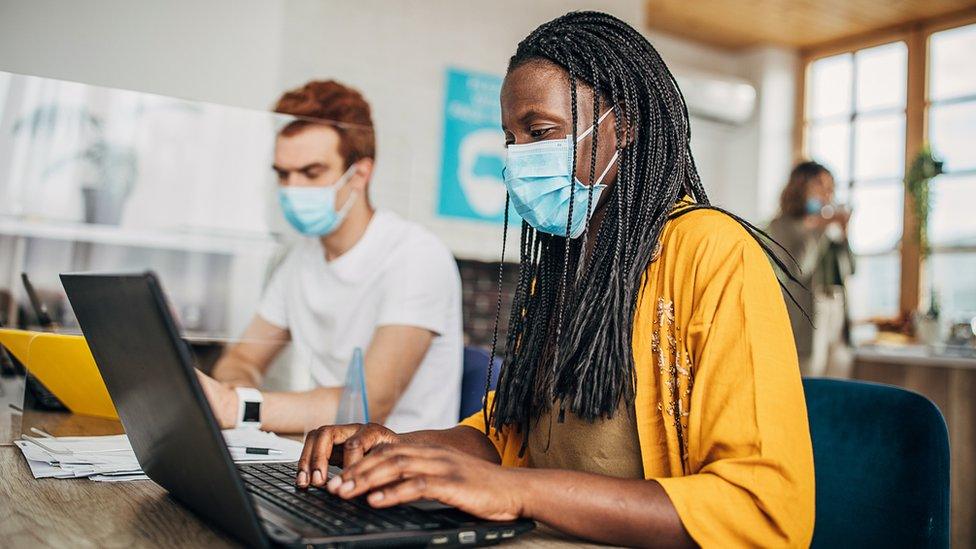
- Published2 August 2021
